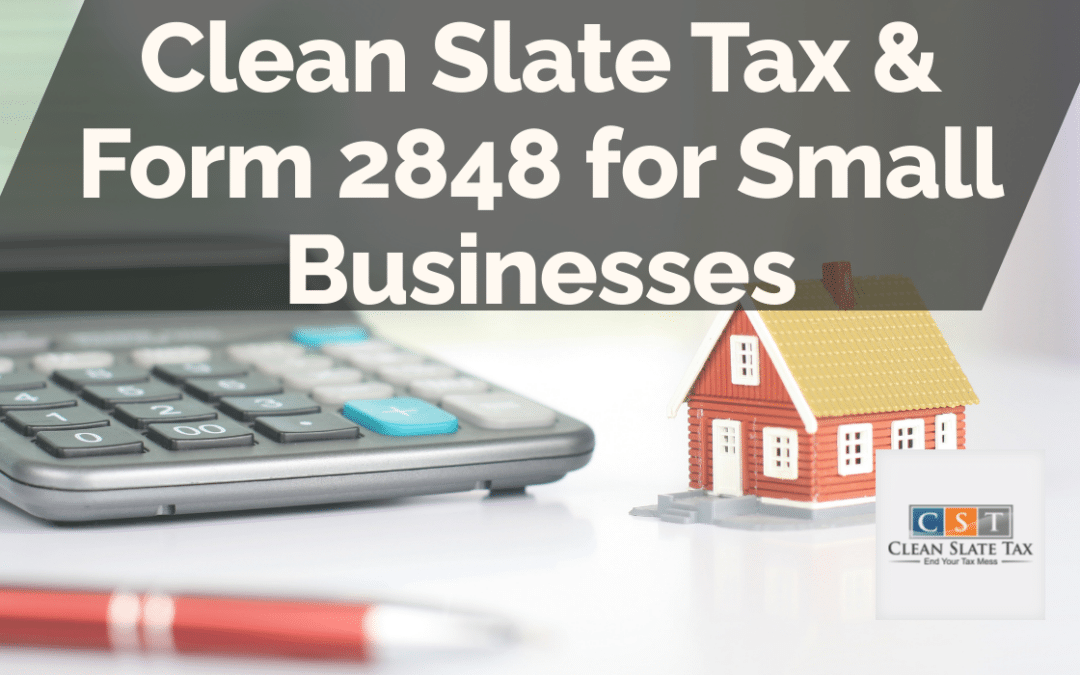Small business owners often face a daunting task when it comes to dealing with tax-related issues. For those who are starting out or struggling to keep up with tax payments, the Clean Slate Tax program is an excellent option to consider.
What is the Clean Slate Tax program?
The Clean Slate Tax program is a tax debt relief initiative designed to help individuals and small businesses with outstanding tax liabilities. It provides an opportunity for taxpayers to settle their tax debts, penalties, and interest for less than the full amount owed.
Under this program, the IRS clears all eligible tax debt from taxpayers’ accounts, giving them a fresh start on their financial obligations to the government. The Clean Slate Tax program is not a one-size-fits-all solution. Each case is evaluated based on the individual’s or business’s situation and how much they can realistically pay.
What are the requirements for Clean Slate Tax eligibility?
To be eligible for the Clean Slate Tax program, taxpayers must meet certain requirements, including:
- They have a total tax liability of $50,000 or less, including penalties and interest.
- They have filed all their tax returns.
- They are not under audit or in litigation with the IRS.
- They are unable to pay their tax obligation in full within the next three years.
If you are unsure whether you meet these requirements, you can contact the IRS for more information.
How can small business owners benefit from the Clean Slate Tax program?
Small business owners who owe back taxes can benefit significantly from the Clean Slate Tax program. Since small businesses are typically cash-strapped, struggling to pay their taxes on time is a common issue. The penalties and interest levied on such businesses can significantly impact their bottom line.
The Clean Slate Tax program provides a way out for such businesses by offering them an opportunity to settle their debt at a reduced rate. Small businesses that take advantage of this program can create a new future and avoid the crippling effects of tax liability on their operations.
What is Form 2848?
IRS Form 2848, also known as a Power of Attorney and Declaration of Representative, is a legal document that authorizes another person to act on your behalf in tax matters.
Small business owners can use this form to authorize another person to represent them before the IRS, handle tax payments, and sign documents on their behalf. It saves time and can help avoid errors in tax documentation.
When should small business owners file Form 2848?
Small business owners should file Form 2848 only when necessary, such as when they need someone else to handle their tax issues or represent them before the IRS.
It is advisable to file this form as early as possible to avoid delays when dealing with tax matters. Delay in filing this form can result in the IRS’s refusal to accept the representation or to provide confidential taxpayer information.
Frequently Asked Questions
What if I owe more than $50,000 in back taxes? Can I still qualify for the Clean Slate Tax program?
No, taxpayers with a total tax liability exceeding $50,000 are not eligible for the Clean Slate Tax program.
Can I apply for the Clean Slate Tax program if I am currently in bankruptcy?
No, taxpayers in bankruptcy cannot apply for the Clean Slate Tax program.
Is there a deadline for applying for the Clean Slate Tax program?
No, the Clean Slate Tax program is ongoing and does not have a deadline for application. You can apply at any time if you meet the eligibility requirements.
Conclusion
The Clean Slate Tax program and Form 2848 are vital tools for small business owners struggling with tax liabilities. Taking advantage of these programs can help such businesses get back on their feet financially, and it is advisable to always seek the help of a tax professional for guidance and advice.





